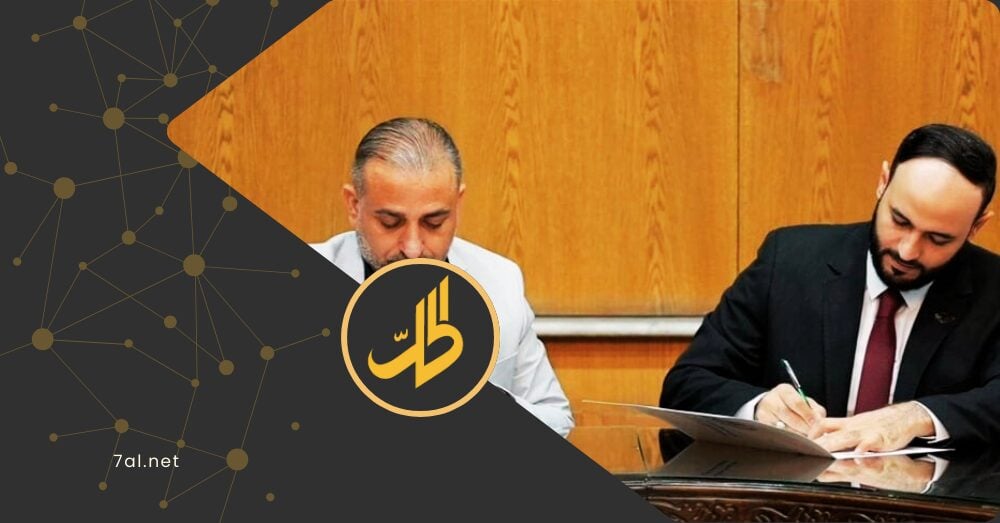
The International Organization for Human Rights and Refugee Affairs supposed secretary-general, Frederick Schulman, is a U.S. investor convicted of multimillion-dollar real estate fraud, al-Hal writes.
Aleppo’s war-weary residents were told in late August that relief was on the way: a $10 million memorandum of understanding signed with the “International Organization for Human Rights and Refugee Affairs” (IOHR) to rehabilitate roads and restore vital infrastructure. The announcement, made via the governorate’s official Facebook page and splashed across state media, was presented as a breakthrough in attracting international support for Syria’s reconstruction.
But within days, an investigation by the fact-checking platform Taakad revealed the “partner” to be little more than a phantom—an unregistered, paper-thin entity with no legal standing, no recognized offices, and a history of fabricated claims.
A Non-Existent Partner
At the signing ceremony, Aleppo Governor Azzam Gharib stood beside Marwan Mohammed Kanjo, who introduced himself as IOHR’s “High Commissioner for the Syrian Arab Republic.” The optics suggested an international partnership; the reality was different. A search of NGO registries in the United States, Europe, and global humanitarian databases turned up no record of the group.
The IOHR’s website was equally suspect: rudimentary, unprofessional, populated with stock images named “WhatsApp Image,” and even borrowing logos from organizations like the UNHCR and Red Cross to imply partnerships that do not exist.
Figures with Troubled Pasts
Behind the IOHR stood figures with dubious records. Its supposed secretary-general, Frederick Schulman, is a U.S. investor convicted of multimillion-dollar real estate fraud, sentenced in 2025 to prison and house arrest. Its director, Majed al-Rakbi, repeatedly registers similarly named entities in the U.K. and U.S.—often at virtual office addresses costing as little as $50 per year—before dissolving them.
Al-Rakbi also runs the “Majed Foundation for Development,” a group tied directly to Ba’athist propaganda campaigns. His foundation has provided logistical support to the Syrian army, organized festivals for Assad-era anniversaries, and partnered with regime-affiliated unions.
Red Flags Everywhere
Technical analysis of IOHR’s website showed its U.S. contact number was a VOIP line flagged as high-risk by verification tools. The domain iohr-us.org was registered via a low-cost provider, with hidden ownership details and hundreds of IP changes—classic signs of instability.
Despite its nonexistent infrastructure, IOHR claimed a long history of humanitarian work, with supposed offices in the United States and Erbil, Iraq. In reality, its fleeting U.K. registration in 2023 was dissolved within a year.
Propaganda Disguised as Partnership
The Aleppo deal fits a broader pattern in which fictitious organizations are used to provide a superficial “international” veneer to local projects. By announcing agreements with entities that have no credibility abroad, regime officials bolster a narrative of foreign support for reconstruction while sidestepping genuine oversight and accountability.
The episode raises fundamental questions: How could a governorate sign a multi-million-dollar memorandum without basic due diligence? Will any funds ever reach Aleppo’s crumbling infrastructure? Or was the spectacle staged primarily to project an image of international legitimacy?
Reconstruction Between Illusion and Reality
The Taakad investigation concluded that IOHR has no financial records, no charity oversight registrations, no partnerships with UN agencies, and is tied instead to individuals convicted of fraud or engaged in pro-Assad propaganda.
For Syrians desperate for reconstruction, the revelation is more than a scandal; it is a warning. If multi-million-dollar projects continue to be built on fictitious partners and shadowy figures, the country’s future rebuilding efforts risk being mired in deception, further eroding public trust in both local governance and external cooperation.
